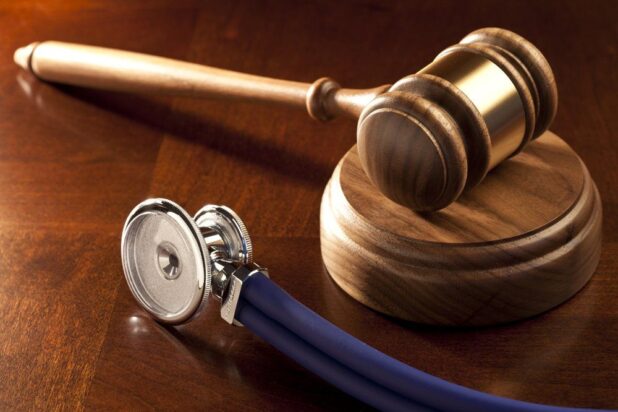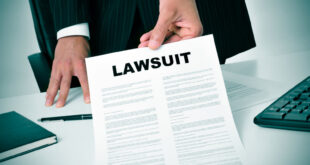Laws exist and are enforced to ensure that nobody suffers injustice. They are present in society so that people who have suffered receive proper settlements and justice.
Accidents take place now and not just car or motor vehicle accidents. People suffer many other types of accidents, leading to personal injuries. Injuries caused by the carelessness of others happen daily. Insurance companies pay billions of dollars for damages caused by car accidents, slips and falls, dog bites, medical malpractice and more.
To win a fair personal injury settlement, you must prove your case. For minor injuries, it’s a relatively straightforward process. File a claim with the perpetrator’s insurance company and negotiate a payment to cover the loss. Severe injuries are even more complicated. Serious damages claims require an experienced attorney.
Many terms and explanations are associated with all of this. It is better to clearly understand everything before you file a case claiming compensation for your losses.
Table of Contents
Personal Injury Compensation

It is a financial statement where one party accepts liability for personal injury caused to the other. But the next question that arises is, “What constitutes a personal injury?”
There is no exact explanation for this. There are many situations where personal injuries are different and do not fall in the same category. But if we have to sum it up, injuries in the workplace account for a significant portion of claims. Dangerous workplaces such as construction areas are more likely to receive affirmations quickly as they are hazardous to work environments.
Injuries that harm an individual’s mental health and suffer psychologically are also considered major personal injuries. Sometimes a person’s work environment is not healthy, and therefore, they go through mental abuse directly or indirectly.
If you or a loved one has suffered a personal injury, including those that affect your mental health, consider contacting Chris Hudson Law Group for expert legal assistance and guidance.
Types of Compensation In A Personal Injury Lawsuit
As personal injuries differ, their compensations are also different for each case. You can claim compensation for your accident or damages with the help of your lawyer. Generally, there are five types of payment in personal injury lawsuits:
General Compensatory Damages
This covers damages mostly related to pain and suffering. The losses are hard to quantify, including injuries that affect mental health. These are intangible losses that cannot be fulfilled with money.
However, monetary compensation is often the only legal remedy available to address these non-economic damages. While money can never fully compensate for the emotional turmoil, anxiety, or depression that may result from an injury, it serves as recognition of the pain and suffering endured. The legal system attempts to assign a monetary value to these intangible losses, using various factors such as the severity of the injury, the impact on daily life, and the potential for ongoing psychological effects. This compensation aims to provide some form of relief, acknowledging the profound impact that such injuries can have on an individual’s quality of life. It also serves as a punitive measure, holding the responsible party accountable for the harm caused. In this way, the financial compensation acts as a tool for justice, albeit an imperfect one, striving to balance the scales for the pain and suffering that cannot be measured in mere dollars. Ultimately, while money cannot erase the trauma, it can facilitate access to resources like therapy and support that are crucial for recovery and healing.
Ubaciti posle: “The total amount varies from case to case and is acquired with the help of a lawyer.”
Special damages are meticulously calculated based on specific losses. This includes medical expenses, lost wages, and the cost of repairing or replacing damaged property. Each aspect is evaluated to determine its financial impact on the individual. Lawyers play a crucial role in this process, ensuring that all relevant costs are accounted for and that their clients receive fair compensation. They meticulously gather evidence, such as bills and salary records, to build a strong case for these compensations. The goal is to fully address the financial burden caused by the incident, restoring the individual’s financial stability as much as possible.
Ubaciti posle: “Exploring the benefits of electrotherapy, in consultation with healthcare professionals, can provide additional avenues for managing and treating back pain resulting from accidents. One could also claim this with the help of of your lawyer.”
In cases of slip and fall accidents, where back pain is a prevalent issue, electrotherapy emerges as a noteworthy treatment to consider. This method is particularly beneficial in addressing the chronic pain often associated with such incidents. It’s essential for individuals who have experienced a slip and fall to consult with healthcare professionals to determine the suitability of electrotherapy for their specific condition. Moreover, securing medical compensation can greatly assist in covering the costs of such treatments.
Apart from electrotherapy, other rehabilitative services like physical therapy or chiropractic care can also be vital in the recovery process. These treatments, tailored to individual needs, can significantly enhance the healing journey. For more information on the options available for managing slip and fall injuries and to understand the scope of medical compensation, individuals are encouraged to visit now a specialized legal advisor or a healthcare provider’s website. These resources can offer guidance on navigating the legal aspects of claiming compensation, as well as provide insight into effective medical treatments for back pain and related injuries. Remember, early and appropriate intervention is key to a swift and successful recovery from slip and fall accidents.
Special Compensatory Damages
This covers financial compensation. All the losses, including physical injury, or damage to the individual’s assets, are covered in special damages. The total amount varies from case to case and is acquired with the help of a lawyer.
Wrongful Death Damages
This area combines special and general compensatory damages. It covers funeral and burial costs.

Medical Compensation
A person can claim money to pay hospital bills, buy medications, and use that money for everything they need for their physical health after the accident in the present and future. Additionally, considering electrotherapy for back pain can be a valuable option for individuals seeking effective pain management and rehabilitation. Electrotherapy utilizes electrical stimulation to target and alleviate back pain, promoting healing and improving overall function. Exploring the benefits of electrotherapy, in consultation with healthcare professionals, can provide additional avenues for managing and treating back pain resulting from accidents. One could also claim this with the help of of your lawyer.
Punitive Damages
This refers to damaging or hurting the culprit in some way so they realize what they have done and the sufferer gets some closure.
There is a range of compensation types of which one must be aware. Knowing this helps you better while talking to your lawyer about your case.
Now that you know all the general information about personal injury and compensation, let’s go through the significant steps that you need to take after a personal injury to get compensation:
9 Steps To Take After A Personal Injury To Get Compensation

Step 1: Contact a lawyer
Get in contact with a personal injury lawyer. They will help and assist you on what to do next and take care of all the necessary paperwork. They will make sure to bring the best possible outcome for you.
Step 2: Contact your doctor
Your doctor will give you the required medical Treatment and all the required information that you will need and documentation of the treatments, injuries and diagnosis.
Step 3: Evaluate your case
Evaluating and understanding your situation before taking further steps is necessary. It will help you analyze and assess what, when and where everything happened and what you must do now.
Step 4: Seek compensation
Try to settle and seek compensation from the person who caused you suffering. If they do nothing, you can file a lawsuit and pursue compensation through court. The court will fairly decide how much you deserve and ensure that the party pays and covers that compensation.
Step 5: Apply for compensation from the court
Immediately apply for compensation after the accident to avoid any problems in the future. The court somewhat makes a decision that benefits the sufferer, and you will not have to handle things alone.

Step 6: Discussing with your lawyer
Soon after the accident, discuss everything with your injury lawyer. Make sure you discuss all the options with them, and they will assist you on what to do next. Do not delay this, or else they might not be able to make a good report and help you in the case well.
Step 7: File an application
If you cannot claim compensation from the person or party who has caused the injury, you can apply to the government, and you will receive government-funded money or any other prize.
Step 8: Legal action against the person who obtained compensation for you
You can file a complaint against the person who got a settlement for you, but sometimes this is impossible. Remember to talk to your lawyer as soon as possible to avoid any issues.
Step 9: Calculating the outcome
Most people receive compensation when they suffer due to a car accident or workplace incident, but sometimes this is not the situation. Whatever your case, talk to your lawyer before making a decision.
The main point is that it is imperative to talk to a personal injury lawyer and ensure that everything is discussed and noted down. Follow these steps to avoid any future problems while seeking compensation.
Conclusion
These were a few steps to take to get compensation after a personal injury. Many other steps are involved in claiming compensation, however, this article deals with some major ones. The most important thing is that you take your decisions with a sound mind.
 World Magazine 2024
World Magazine 2024






